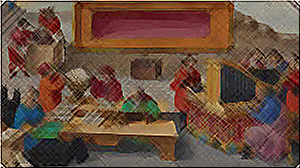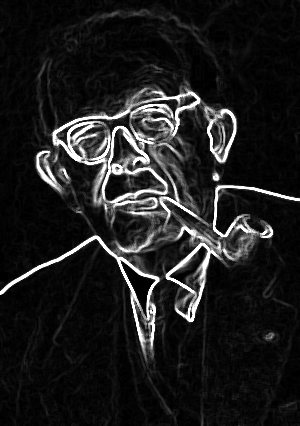.png)
The development of massive education is very complex and has changed between countries and historical periods. Aztecs and ancient Jewish societies established a very structured education for many popular sectors to accomplish religious rites throughout the year. Sometimes, this education incorporates mathematics as a compulsory subject for calendar interpretation, land division, and commerce. The education changes in the XVII century, because of the people knowledge difficulties the power imposition of the monarchy in many countries. Also, the advances in mathematics were directly related to the use of weapons and warships in the national conflicts of those ages.

This political use of education was well understood by the French revolution, with many ministers interested in the massive education of society in mathematics. Condercet and Humboldt, in France and Prussia respectively, fight for a popular diffusion of mathematical ideas to understand the scientific advances of the nineteenth century. Their success was very influential around the world and the curricula approved in those times, with significant corrections, still is the mathematical content teach in schools in our times. Unfortunately, the educative reforms take out the advances of twentieth-century mathematics from basic education.

Felix Klein, a notorious German mathematician, was very concerned about the development of mathematical thinking in practical areas, like physics or engineering. He wrote an influential math textbook and organizes the International Commission of Mathematical Instruction, still working today. His legacy was the interest of international cooperation in mathematics education and a focus on the continuous perfection of math didactics, with emphasis on practical applications.

After Kelin, the world divides between to ways of thinking: the cognitivism and the sociocultural approach. Cognitivism was developed by Jean Piaget in France, with a fundamental emphasis on the development of the person as a singular entity that will interact later with society. The sociocultural approach was developed by Lev Vigotsky in the Soviet Union, with an emphasis on the interaction of the students between them and the society that presents and incorporates knowledge by social interaction. Both points of view were developed independently in the first half of the twentieth century, and nowadays different proposals incorporate fundaments of each of these seminal works.

At the beginning of the sixties, a major change in the Mathematics Education takes place as a result of the political interest of France to be the social and cultural reference of non - communist countries. A group of mathematicians, led by Jean Dieudonne, proposed a math elementary education centered on algebra and set theory, without the emphasis of geometry done by many European schools before the Second World War. Their efforts produced an international change effort on the math curriculum, but unfortunately, the results does not make better students in the discipline. For this reason, many researchers began the study of the pedagogic process of math education since the seventies.
.png)